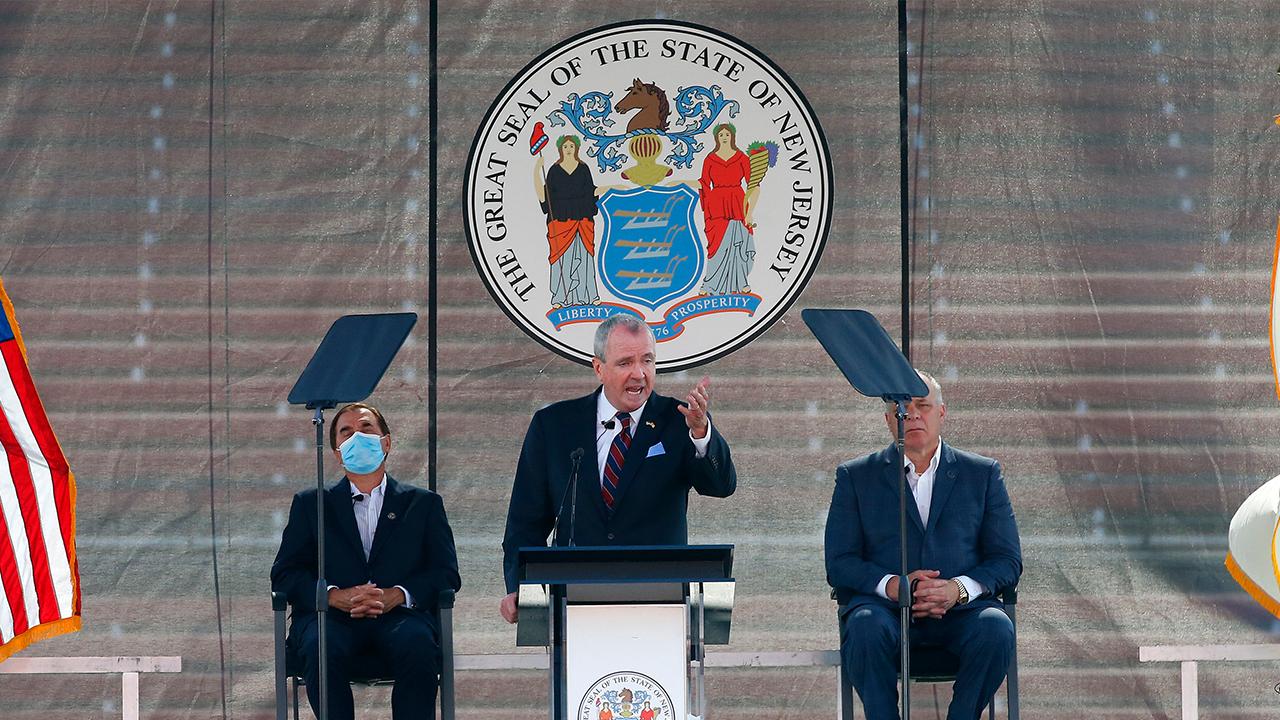New tax forces major stock market players to threaten move from NJ
Group contends retirement savings of millions of Americans could be hurt
A group of stock exchanges and trading platforms have banded together to create the Coalition to Prevent the Taxing of Retirement Savings in reaction to a proposed financial transactions tax in New Jersey.
The coalition, which contends that millions of Americans who invest in financial markets to save for retirement would be hurt by this new tax, is planning tests in the coming weeks to ensure that they have the ability to move out of New Jersey if the tax makes it impossible for them to operate in the Garden State.
"There's this idea, which was true for a long time before there was full electronic trading, that you needed proximity, you needed to be close," a spokesperson for the coalition told FOX Business. "What this test will be establishing is that, actually, these data centers are quite portable. This isn't something that these companies want to do, by any means, but they're concerned about the possibility of rising costs, and they have customers who are concerned about costs as well.
STOCKS FINISH MIXED AS NASDAQ BOOKS WORST WEEK SINCE MARCH
A bill introduced into the New Jersey state legislature, which has the support of Governor Phil Murphy, would impose a "tax on persons or entities that process 10,000 or more financial transactions through electronic infrastructure located in New Jersey during the year." The tax would work out to a quarter of a cent per transaction.
With billions of financial transactions processed daily, some projections from the legislature estimate New Jersey could collect $10 billion annually from the tax on stocks, options, futures and swaps trading made in the state's electronic data centers,
Members of the coalition include the New York Stock Exchange, Nasdaq, Members Exchange, Cboe Global Markets, Citadel Securities, Virtu Financial, TD Ameritrade, and Equinix. New Jersey is home to for many Wall Street server "farms."
The first test to move beyond New Jersey will take place on Saturday, Sept. 26th. Members of the coalition were already planning a test for that weekend, but the plans were recently expanded to test full functionality in light of New Jersey's proposed financial transaction tax.
TESLA STOCK PLUNGES AFTER SNUB FROM S&P 500
"The scope for this weekend test has been expanded from a connectivity-only test to a full feature test of all exchange functionality in order to ensure Cboe’s ability to quickly relocate data center operations from Secaucus, NJ to Chicago, IL in the event that it was determined transacting exchange business in Secaucus, NJ would result in extra, unnecessary costs to investors," Cboe Global Markets told traders. Cboe, which owns the Chicago Board Options Exchange and the stock exchange operator BATS Global Markets, declined to comment further for this story.
The New York Stock Exchange told traders Friday that the test is to ensure they can leave New Jersey if "adverse tax policies are enacted."
Nasdaq told traders that it will be taking part in the test to ensure that it can move out of New Jersey for "financial feasibility" if it needs to.
Intercontinental Exchange, the parent company of the New York Stock Exchange, did not respond to a request for comment Friday. Nasdaq did not respond to a request for comment in time for the publication of this story.
GET FOX BUSINESS ON THE GO BY CLICKING HERE
Senator Bernie Sanders, I-Vt., has introduced a financial transaction tax (FTT) bill at the federal level that he claims would generate $2.4 trillion in revenue over a decade.
A Tax Foundation report earlier this year found that a financial transaction tax (FTT) could be a substantial revenue source for governments, but would have adverse effects on financial markets and the economy.
"The burden of an FTT would primarily fall on the wealthy, as the wealthy hold and trade financial assets the most frequently," authors of the report wrote. "However, the portfolio values of all investors would be decreased by the reduction in asset prices. An FTT would increase the cost of consumer goods, meaning that all taxpayers would be subject to the tax indirectly."




















